Andy Conner is a Birmingham-based poet and teacher. His work has featured in a range of publications and he has one anthology, ‘Red’ (Dynamic Press), published. A second collection is being prepared for publication. He is also the author of ‘Once’ (Dynamic Press), a teen fiction novel. Andy has a long track record as a […]
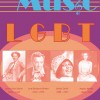
LGBT History Month 2014: Music – Faces of 14 Resources
The theme for History Month 2014 is Music. To cover the LGBT range we have four ‘faces’ from the field of music – lesbian composer and suffragette Dame Ethel Smyth, gay classical composer Lord Benjamin Britten (whose centenery is being marked in 2013); bisexual blues singer Bessie Smith, and trans TV and film music composer […]
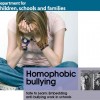
DCSF 2007: Homophobic Bullying (Safe to Learn)
Safe to Learn: Embedding anti-bullying work in schools The guidance is split into 3 sections 1) Advice for Governors 2) Advice for Senior Head and Management Staff 3) Advice for Teachers and School Staff Each section covers: The Legal Framework Recognition Prevention Responding Monitoring To downlaod the pdf, click on the image.
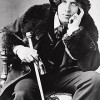
KS3: History – ‘Hidden Histories’
Over the last fifty years the study of the past has begun to look at people from groups not previously given much attention by historians, including: • Women’s History • Working people’s History • Black History • Native American History • Non-Christian History • LGBT History This lesson ask learners to consider why the history […]
English Lesson: Coronation Street Stereotypes
Lesson Title: Coronation Street (Stereotypes) Subject:English Overview: Learning objectives Get students to: • give individual responses to a written text (AT 1 and 2) • develop inference and deduction (AT 2) • understand more complex sentences (AT 3) • look at humour in writing (AT 1 and 2) • examine stereotypes (AT 1 and 2) […]
Recent Videos
Recent Posts
- KS4 English – Shakespeare, Sonnets and Sexuality
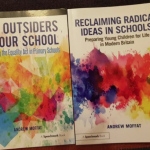 NO OUTSIDERS IN OUR SCHOOLS Teaching the Equality Act in Primary Schools & RECLAIMING RADICAL IDEAS IN SCHOOLS Preparing Young Children for Life in Modern Britain By Andrew Moffat
NO OUTSIDERS IN OUR SCHOOLS Teaching the Equality Act in Primary Schools & RECLAIMING RADICAL IDEAS IN SCHOOLS Preparing Young Children for Life in Modern Britain By Andrew Moffat PSHE – Alphabet Soup
PSHE – Alphabet Soup KS3 – PSHE – Shark Bait
KS3 – PSHE – Shark Bait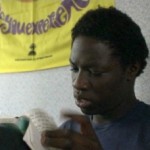 KS4 – PSHE Omar: Young, Gifted and Gay 2 Part 1
KS4 – PSHE Omar: Young, Gifted and Gay 2 Part 1
Tags
SUBMIT YOUR OWN
COPYRIGHT STATEMENT
If copyright is claimed in any photograph which appears on this website, please contact us and we will happily remove it.
Subscribe / Connect
Subscribe to our e-mail newsletter to receive updates.



